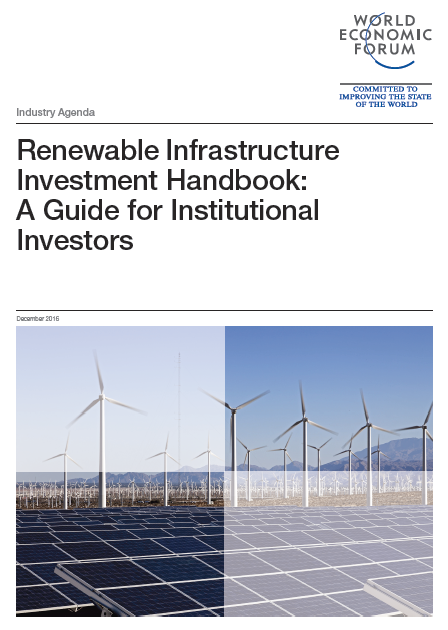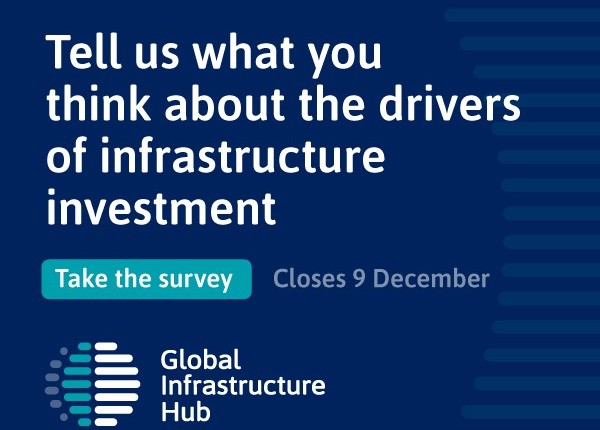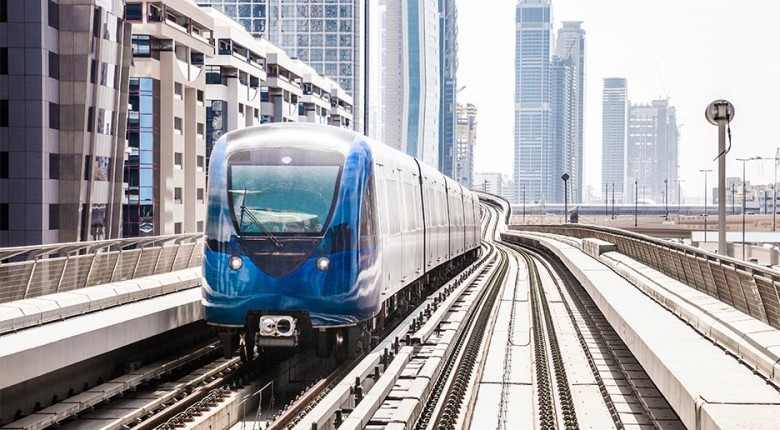1021 results found
Featured results



More results
Officials from the Korean Ministry of Strategy and Finance officials and the Korea Development Institute (KDI) met with the GI Hub in Sydney on 14 December 2016 for discussions during their study visit to Australia on Public-Private Partnerships in infrastructure.
The Global Infrastructure Hub has launched its Project Pipeline, an online platform to provide the private sector with free information about government infrastructure projects across the world.
The Global Infrastructure Hub’s Hyeyoung Kim and Morag Baird joined World Bank PPP and Infrastructure Consultant Rob Richards for a webinar discussing how infrastructure projects in Korea are assessed and determined to be Public Private Partnerships.

This handbook provides institutional investors with an overview of opportunities and risks of investing in renewable energy infrastructure.


The GI Hub’s Bill Brummitt met today with China Public Private Partnerships Centre Deputy Director General Mr Han Bin and his team in Beijing. Under discussion was the deployment strategy for the Mandarin version of the GI Hub’s risk allocation matrices, as well as the GI Hub’s Project Pipeline, and other areas for co-operation.
The GI Hub wants to hear your views on the policies and practices that enable greater investment in infrastructure.
This brief outlines some new technological solutions for energy storage in emerging markets

The Hong Kong SAR Secretary for Financial Services and the Treasury, Professor K C Chan, along with other senior officials of the Hong Kong Treasury, met with the GI Hub in Sydney on Thursday, 10 November. The parties discussed the work of the Hong Kong Infrastructure Financing Facilitation Office (IFFO), established by the Hong Kong Monetary Authority (HKMA).
Indonesian Ministry of Finance officials visiting Australia met with the GI Hub in Sydney today for discussions on infrastructure.
The Global Infrastructure Hub will unite with APEC (Asia-Pacific Economic Cooperation) to exchange key knowledge and help countries to unlock private investment to finance much needed public infrastructure.
Investors are most concerned about political and regulatory stability and the liquidity of the infrastructure market when considering funding public infrastructure, a new survey has revealed.
The Joint MDB Statement for Crowding-in Private Finance builds on the previously approved Principles for MDBs’ Strategy Crowding-in Private Sector Finance for Growth and Sustainable Development, and the 2016 Joint Declaration of Aspirations on Actions to Support Infrastructure Investment.


This report seeks to identify key capital markets instruments that can help mobilize institutional investors to infrastructure and small and medium enterprises (SME) financing in emerging market economies (EMEs).


These guidelines, circulated by the MoF in September 2016, task the finance departments at all levels of government with arranging PPP project preparation, budgetary funding, procurement, budgetary expenditures and revenues, and performance management etc.

On 3 August 2016, the Lowy Institute hosted Global Infrastructure Hub CEO Chris Heathcote in conversation with G20 Studies Centre Project Director Tristram Sainsbury.



The G20 Finance Ministers and Central Bank Governors have welcomed the launch of a new, interactive online risk allocation tool, the Global Infrastructure Hub’s (GI Hub) Annotated Public-Private Partnership (PPP) Risk Allocation Matrices. The Risk Allocation Matrices tool, developed by the GI Hub in partnership with global law firm Norton Rose Fulbright, has been designed to assist developing economies better assess potential infrastructure investment risk.
Japan's Program for Earthquake-Resistant School Buildings has increased the seismic safety of Japanese schools, and hence increased the safety of Japanese schoolchildren, teachers, and communities. Since 2003, when the program accelerated, the share of earthquake-resistant public elementary and junior high schools has increased, from under half of schools in 2002 to over 95 percent in April 2015. Japan is sharing knowledge from this program with developing countries through its relationship with the Global Facility for Disaster Reduction and Recovery (GFDRR), whose Global Program for Safer Schools has been supported by the Japan–World Bank Program for Mainstreaming Disaster Risk Management in Developing Countries and its implementing arm, the Disaster Risk Management Hub, Tokyo.




 Pipeline Access
Pipeline Access










